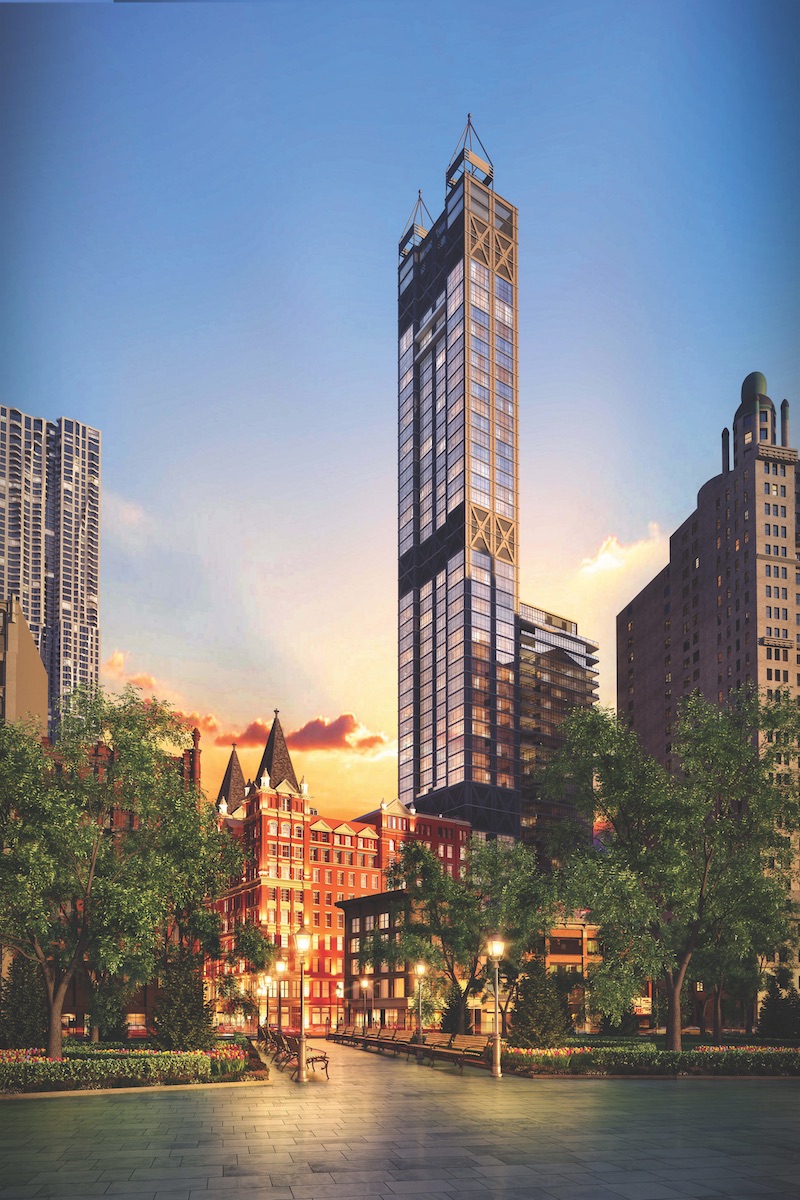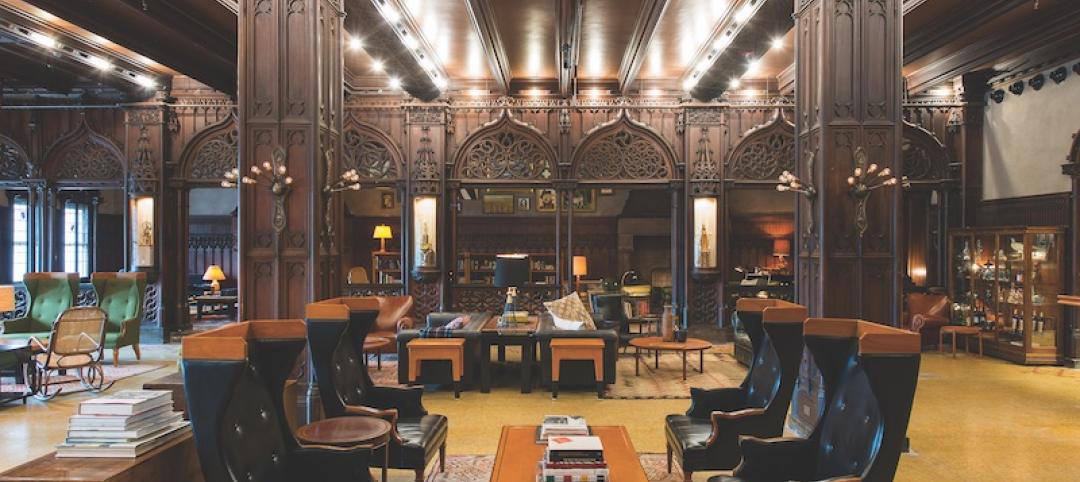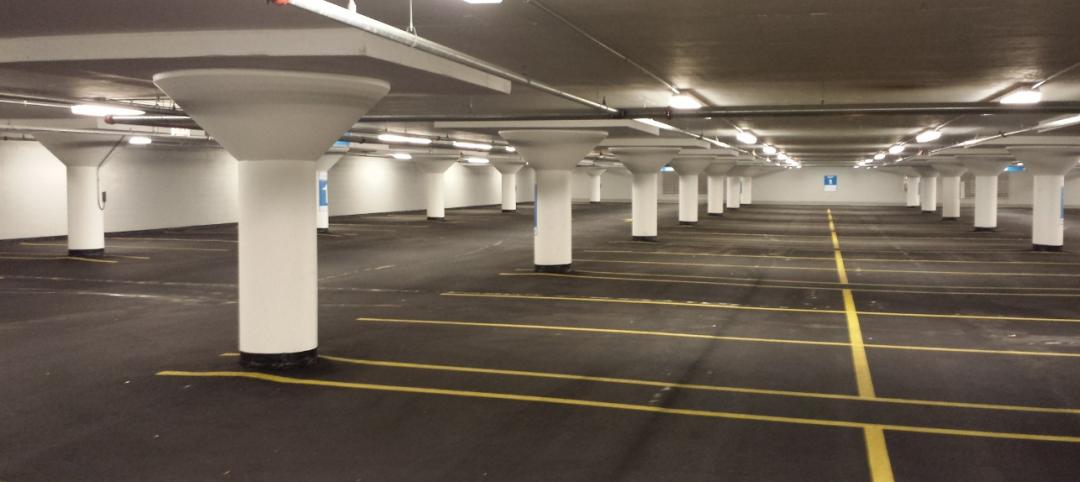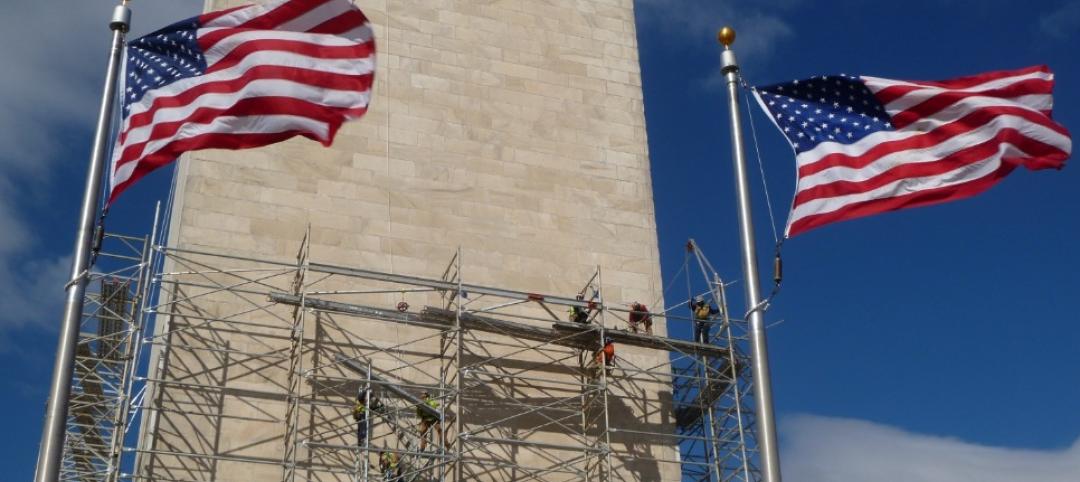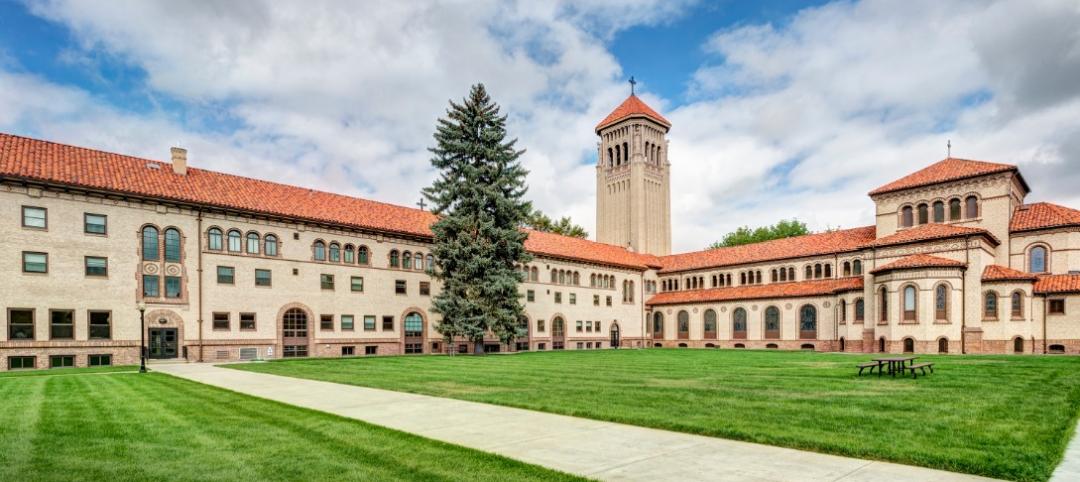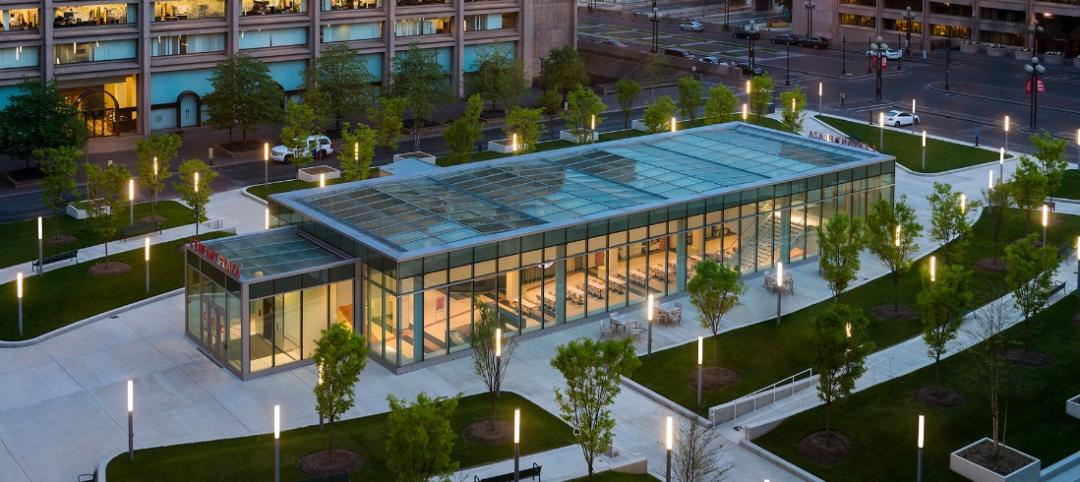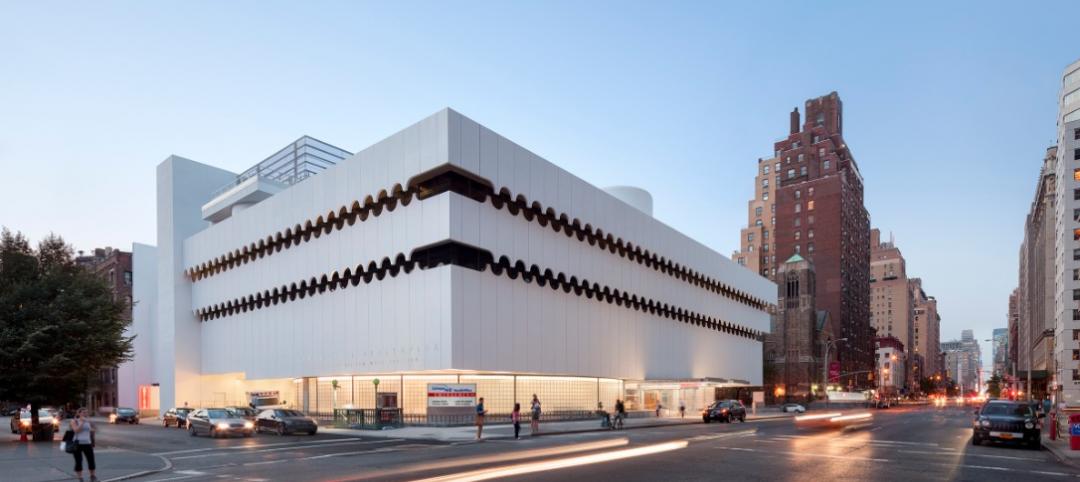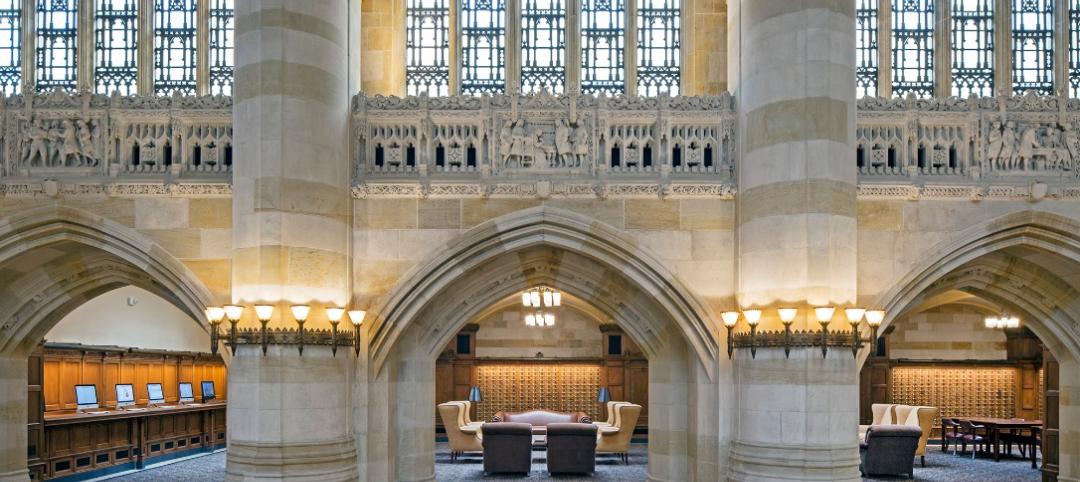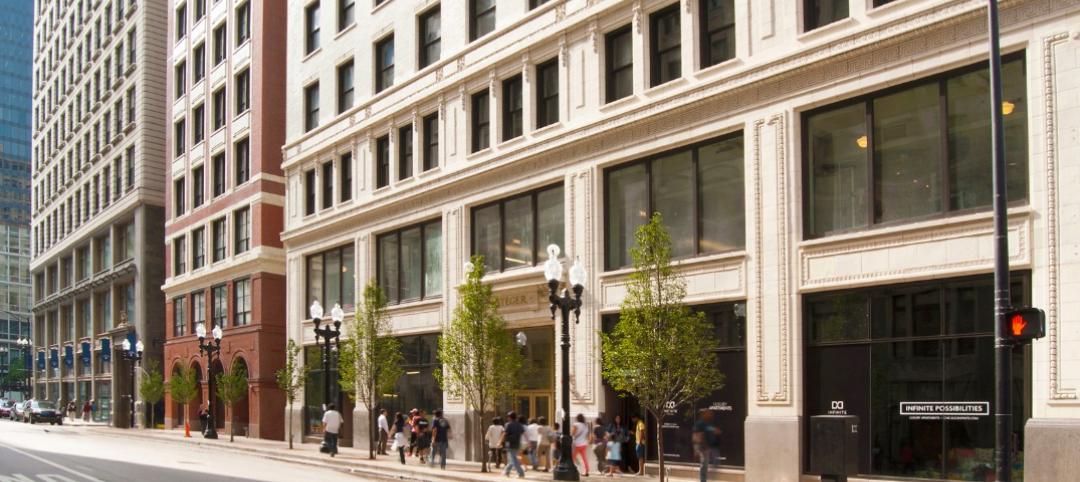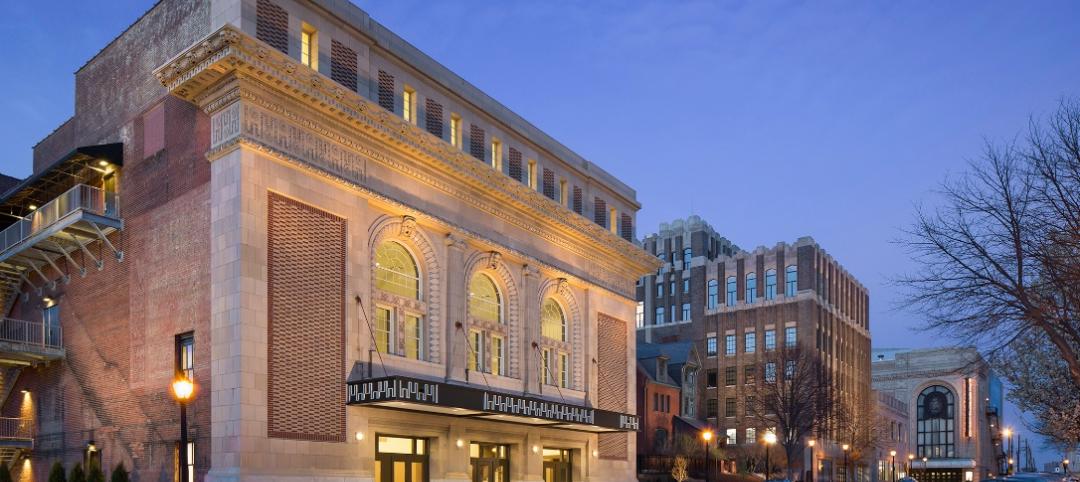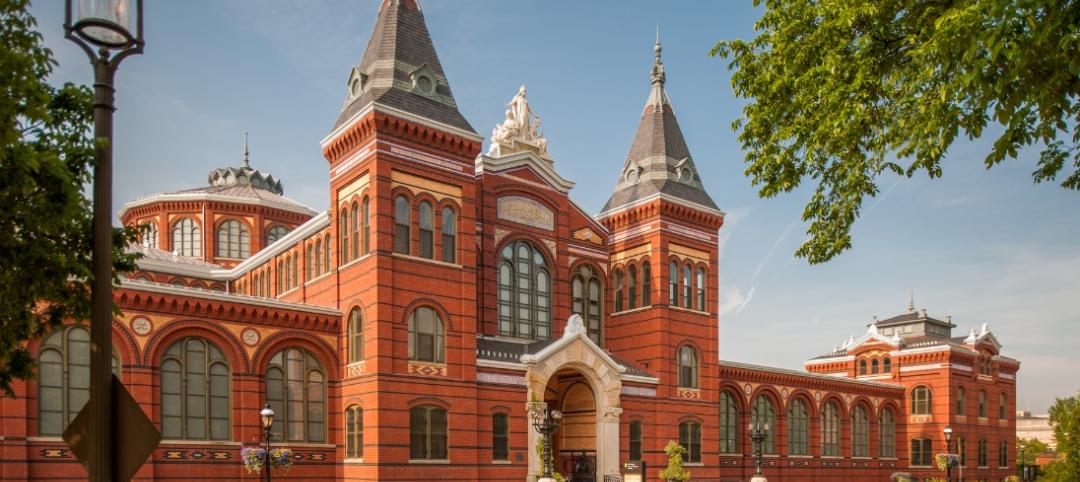When it opened in 1883, the nine-story Temple Court Building was one of the tallest buildings in New York City, and one of the first with a soaring, open atrium at its center. The red-brick and terra cotta office building was commissioned by dry-goods retailer and banker Eugene Kelly to house law practices. Its signature turrets were trendsetting at the time—the Woolworth Building adopted similar architectural elements some 30 years later.
Temple Court and its Annex (1890) were designated a New York City landmark in 1998, to no avail: the last tenant moved out at the end of 2001.
In 2012, a development group led by Allen Gross, President of GFI Capital Resources, purchased the property and set a plan to revive it for hotel/retail use, along with the construction of a ground-up, 51-story residential tower on the adjacent lot. The bottom 10 floors of the new tower adjoin the historic property; both house hotels rooms. The upper 41 floors of the tower contain 67 luxury condos and amenities spaces. Beekman Hotel and Residences was fully completed earlier this year.
Key to the landmark building’s revival was overcoming a tenuous fire code issue that forced its previous owners, in the 1940s, to fully enclose the dramatic open atrium with walls, hiding the atrium, railings, and skylight from view. The team worked with the NYC fire department and the Landmarks Preservation Commission to implement a novel $2 million smoke curtain system—the first of its kind in North America—that permitted the obtrusive atrium walls to come down. Curtains were installed on every floor to ensure that smoke would be contained in case of a fire. Fans on the roof and a smoke purge system draw fresh air in via the ground-floor windows and doors.
The team faced other technical problems: inadequate MEP infrastructure (solution: place all mechanical systems in the new tower); varying floor heights (solution: design the tower’s lower floors to align seamlessly); and spotty vertical access throughout construction (solution: careful planning of materials delivery and project sequencing).
The Beekman Hotel opened in September 2016. It was an instant hit. As one guest put it, “What you will find throughout the property are surprises and delight. The attention to detail is what strikes you first, and then the pure class and elegance.”
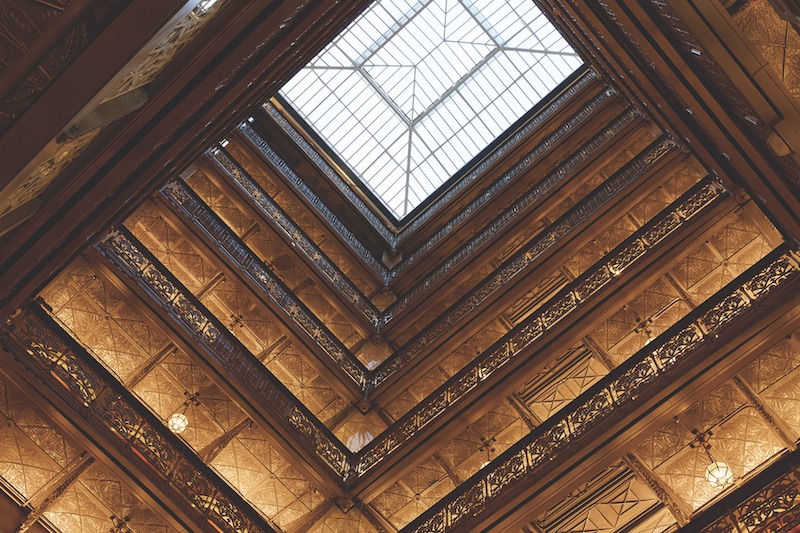
Bronze Award Winner
BUILDING TEAM Broadway Construction Group (submitter, GC) 5 Beekman Property Owner, LLC (owner) Gerner Kronick & Valcarcel (architect) Martin Brudnizki Design Studio (interior architect) WSP (SE) PHA Engineering (CE) Lilker Associates (MEP) Mueser Rutledge Consulting Engineers (geotechnical engineer) DETAILS 350,000 sf Total cost $400 million Construction time 2013 to 2018 Delivery method Cost plus
CLICK HERE TO GO TO THE 2018 RECONSTRUCTION AWARDS LANDING PAGE
Related Stories
Reconstruction Awards | Nov 11, 2016
Exclusive Chicago club re-emerges as a boutique hotel
Built in 1893 for the World’s Columbian Exposition, the CAA was an exclusive social club founded by leading figures in American sports and commerce.
Reconstruction Awards | Dec 1, 2015
Massive Chicago parking garage gets overdue waterproofing
Millennium Lakeside Garage, the largest underground parking facility in the U.S., hadn’t been waterproofed since the 1970s. The massive project took nearly 2½ years and 33,554 man-hours.
Reconstruction Awards | Nov 30, 2015
Washington Monument restored after 2011 East Coast earthquake
This restoration and repair project, which was completed under budget and eight days early (despite several setbacks), involved re-pointing 2.5 miles of mortar joints, repairing 1,200 linear feet of cracks, and installing 150 sf of Dutchman repairs. Construction took place from November 2011 to May 2014.
Reconstruction Awards | Nov 30, 2015
Denver's 107-year-old seminary campus modernized
The scope of the project included the seminary dorms, library, and chapel, all of which posed their own set of obstacles.
Reconstruction Awards | Nov 24, 2015
Center of I.M. Pei-designed plaza part of Washington redevelopment
The L’Enfant Plaza, a three-story below-grade mall, was renovated to include a new glass atrium pavilion and a 40-foot-long, interactive LED.
Reconstruction Awards | Nov 24, 2015
Manhattan's first freestanding emergency department a result of adaptive reuse
The Lenox Hill Healthplex, a restoration of the Curran O’Toole Building, has glass-block walls and a carefully preserved exterior.
Reconstruction Awards | Nov 19, 2015
Nave restored at Yale’s Sterling Memorial Library
Turner Construction and Helpern Architects revived the 150-foot-long nave, which was embellished with stained glass windows by G. Owen Bonawit, stone carvings by René P. Chambellan, and decorative ironwork by Samuel Yellin.
Reconstruction Awards | Nov 19, 2015
Infinite Chicago redevelopment bridges past to present
The renovation of three historic downtown buildings—the Gibbons and Steger Buildings and Pickwick Stables—includes a multi-level concrete walkway connection.
Reconstruction Awards | Nov 18, 2015
Sun Theater serves the youth of St. Louis
Lawrence Group and property owner TLG Beaux Arts raised $11 million to restore the 26,000-sf theater into a modern performance venue.
Reconstruction Awards | Nov 17, 2015
Smithsonian Institution’s Arts and Industries Building again an exposition and museum space
After removing decades’ worth of unfortunate additions to expose 17 historic interior spaces for the National Historic Landmark, the Building Team zoned in on the client’s key concern.


